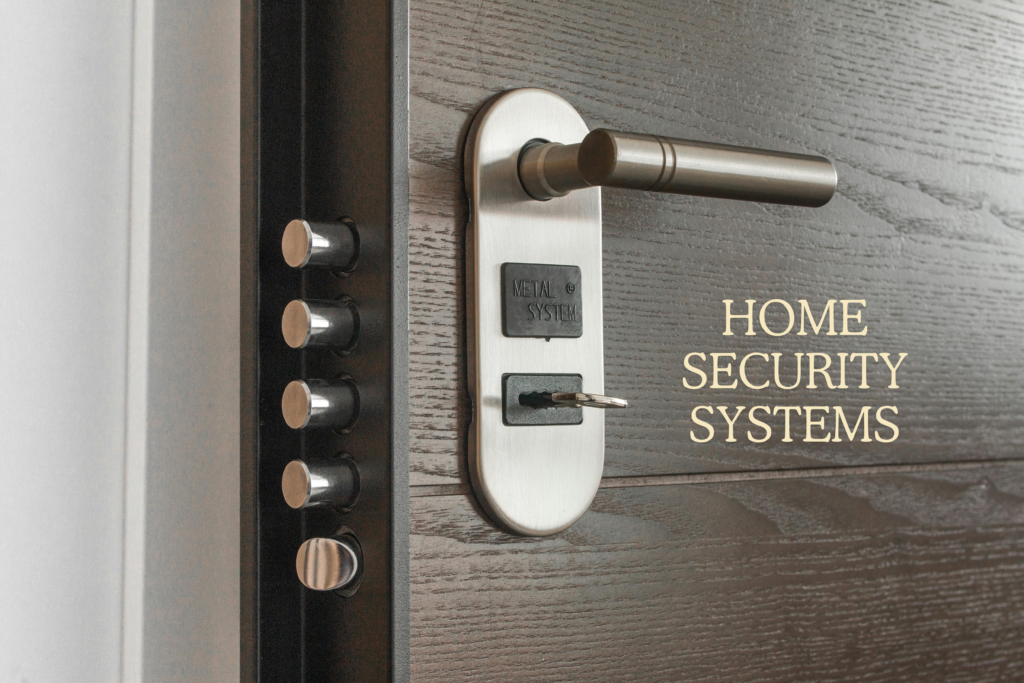Introduction: Ensuring the safety of your home and loved ones is paramount. In today’s fast-paced world, investing in reliable home security systems provides peace of mind and safeguards your property against potential threats. In this comprehensive guide, we’ll delve into various aspects of home security systems, exploring their benefits, features, and installation tips to empower you to make informed decisions for your household’s safety.
Understanding Home Security Systems
Home security systems encompass a range of devices and technologies designed to protect residential properties from unauthorized access, burglary, fire, and other emergencies. These systems typically consist of surveillance cameras, motion sensors, door and window sensors, alarms, and control panels, all interconnected to provide seamless monitoring and response capabilities. You may also like to read about Home Maintenance: A Guide to Keeping Your House in Top Shape.
The Importance of Home Security Systems
Home security systems serve as a proactive deterrent against intruders and provide real-time alerts in the event of suspicious activities or emergencies. By investing in a robust security system, homeowners can deter potential threats, minimize property damage, and ensure swift responses to emergencies, thereby enhancing overall safety and peace of mind.
Types of Home Security Systems
Monitored Systems:
These systems are connected to a central monitoring station that alerts authorities in case of emergencies.
Unmonitored Systems:
These systems trigger alarms but don’t alert authorities. Instead, they rely on neighbors or passersby to respond to the alarm.
Wireless Systems:
Wireless security systems offer flexibility and easy installation without the need for extensive wiring.
Smart Home Integration:
Modern security systems can integrate with smart home devices, allowing remote monitoring and control via smartphones or tablets.
Choosing the Right Home Security System
Selecting the appropriate home security system requires careful consideration of your property’s layout, budget, and specific security needs. Here are key factors to keep in mind:
1. Assess Your Security Needs
Evaluate your property’s vulnerabilities and determine which areas require protection, such as entry points, windows, and outdoor spaces. Identify potential threats and prioritize features accordingly.
2. Research Available Options
Research different types of security systems, compare features, and read customer reviews to gauge reliability and performance. Look for systems with customizable features and professional monitoring services for added peace of mind.
3. Consider Budget and Long-Term Costs
Establish a budget for your security system, considering initial installation costs, monthly monitoring fees, and any additional expenses for upgrades or maintenance. While cost is important, prioritize quality and reliability to ensure effective protection.
4. Installation and Setup
Choose a system that offers easy installation and setup, whether DIY or professional installation services. Ensure that all components are properly configured and tested to ensure seamless operation.
Installation Tips for Home Security Systems
Installing a home security system requires careful planning and execution to maximize effectiveness. Follow these tips for a smooth installation process:
1. Strategic Placement of Sensors and Cameras
Position sensors and cameras strategically to cover all entry points, vulnerable areas, and blind spots. Ensure cameras have clear lines of sight and adequate lighting for optimal visibility.
2. Secure Wireless Connections
If using wireless security devices, secure your Wi-Fi network with a strong password and enable encryption to prevent unauthorized access or tampering.
3. Test System Regularly
Regularly test your security system to ensure all components are functioning correctly and batteries are charged. Conduct periodic maintenance checks and address any issues promptly.
4. Update System Firmware
Keep your security system’s firmware up to date to ensure compatibility with the latest technologies and security patches. Regular updates help safeguard against vulnerabilities and potential security breaches.
Frequently Asked Questions (FAQs)
What are the benefits of home security systems?
Home security systems provide round-the-clock protection, deterrence against intruders, real-time alerts for emergencies, and peace of mind for homeowners.
How do monitored security systems work?
Monitored security systems are connected to a central monitoring station staffed by trained professionals who respond to alerts and dispatch emergency services as needed.
Can I install a home security system myself?
Yes, many home security systems offer DIY installation options with easy-to-follow instructions. However, professional installation services are also available for added convenience and expertise.
Are wireless security systems reliable?
Wireless security systems are highly reliable when properly installed and maintained. They offer flexibility, easy installation, and scalability for expanding your security network.
Do home security systems require monthly fees?
Some home security systems offer optional monthly monitoring services for additional features such as professional monitoring, cloud storage, and remote access via mobile apps.
Can home security systems integrate with smart home devices?
Yes, many modern security systems are compatible with smart home devices such as voice assistants, smart locks, and lighting controls, allowing seamless integration and control.
Conclusion
Investing in a comprehensive home security system is essential for safeguarding your property and loved ones against potential threats. By understanding the different types of security systems, assessing your specific needs, and following installation best practices, you can enhance the safety and security of your home. With advanced features such as remote monitoring and smart home integration, modern security systems offer convenience, reliability, and peace of mind for homeowners.

